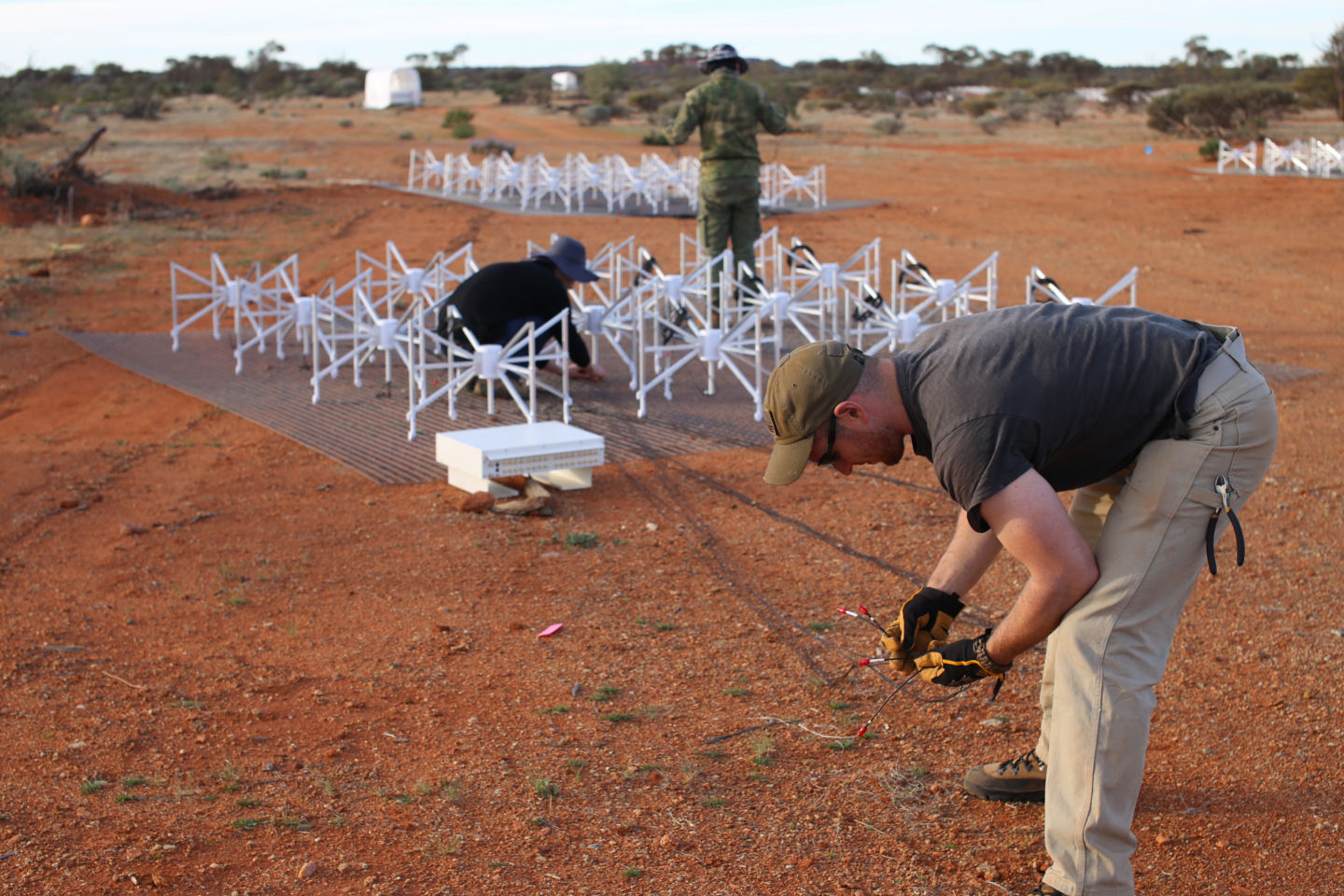
Construction of a $3 billion, globally significant space research project in the Murchison region is now expected to start mid-year, as negotiations continue for a land use agreement with Traditional Custodians.
Scientists have worked for years to build part of the Square Kilometre Array, an international radio telescope project, in Western Australia, with the state selected as one of the sites in 2012.
They reached a huge milestone last year, with construction approved by the international organisation created to build the facility, Square Kilometre Array Observatory.
The SKA is expected to cost €1.9 billion and it is planned to receive and analyse radio waves from the furthest distances yet achieved, allowing scientists to study fundamental questions on the foundation and earliest periods of the universe.
It will be built with two hubs, one in South Africa, and one in Western Australia, where 131,000 small antennas will be positioned in the Murchison region.
But while there were hopes construction would already be under way, the federal Department of Industry, Science, Energy and Resources needs to finalise a land use agreement with Traditional Custodians.
The Wajarri Yamaji people have reportedly expressed concerns over the years about how the big project will impact their land and heritage.
A spokesperson for the Yamatji Marlpa Aboriginal Corporation said the organisation was unable to comment as negotiations were ongoing.
When Australia ratified the Square Kilometre Array Observatory treaty in September 2020, the federal government said construction was expected to start in mid-2021.
The May federal budget pledged $387 million over 10 years as part of Australia’s commitment, while an announcement by the United Kingdom-based SKA Observatory governing body in June suggested construction would start in July of 2021.
In August, in response to questions by Business News, the federal Department of Industry, Science, Energy and Resources said construction was expected to start in early 2022, and that work on heritage protection would be undertaken to meet that timeframe.
The negotiation is continuing as of this week.
“The parties are working together to support the project, protect Wajarri Yamaji cultural heritage and ensure the Wajarri community receives a range of long-term benefits,” the spokesperson said.
“The SKA Observatory is currently planning to begin construction at Australia’s SKA site by mid‑2022, and the negotiating partners are working to finalise the agreement to meet this timing.
“As we’ve previously advised, protecting Wajarri Yamaji heritage is paramount, and (the department) and CSIRO are continuing to work closely with the Traditional Owners to complete heritage surveys over the areas of land that will be impacted by SKA infrastructure and developing a comprehensive cultural heritage management plan.”
Procurement work is under way.
Four Australian packages are at tender stage: a remote accommodation camp for construction; buildings; for the airstrip and access road; and a spatial contract including power and fibre networks.
Three Australian organisations have won tenders so far, all for software development.
They are the CSIRO, the Perth-based International Centre for Radio Astronomy Research, and Fourier Space.








